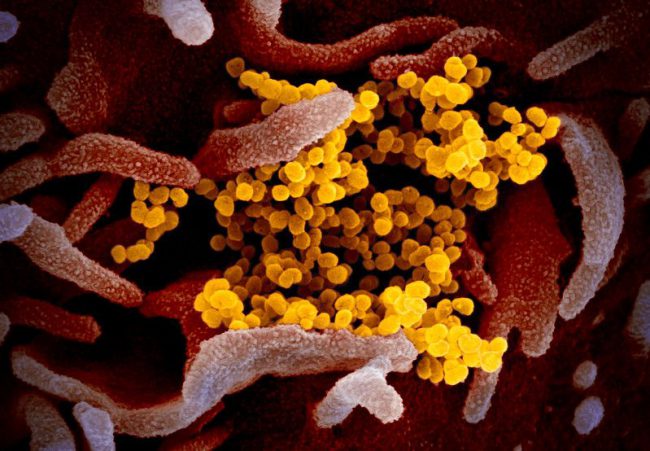Coronavirus, also known as COVID-19, was first reported in Wuhan, China. It has now spread to a number of countries around the world. We use Google Trends to find out what people want to know about the new coronavirus.
Here are the questions and answers.
What is the coronavirus?

Coronaviruses are types of viruses that typically affect the respiratory tracts of birds and mammals, including humans. Doctors associate them with the common cold, bronchitis, pneumonia, and severe acute respiratory syndrome (SARS), and they can also affect the gut.
These viruses are typically responsible for common colds more than serious diseases. However, coronaviruses are also behind some more severe outbreaks.
Over the last 70 years, scientists have found that coronaviruses can infect mice, rats, dogs, cats, turkeys, horses, pigs, and cattle. Sometimes, these animals can transmit coronaviruses to humans.
Researchers first isolated a coronavirus in 1937. They found a coronavirus responsible for an infectious bronchitis virus in birds that had the ability to devastate poultry stocks.
According to the Medical News today, Scientists first found evidence of human coronaviruses (HCoV) in the 1960s in the noses of people with the common cold. Two human coronaviruses are responsible for a large proportion of common colds: OC43 and 229E.
The name “coronavirus” comes from the crown-like projections on their surfaces. “Corona” in Latin means “halo” or “crown.”
Among humans, coronavirus infections most often occur during the winter months and early spring. People regularly become ill with a cold due to a coronavirus and may catch the same one about 4 months later.
This is because coronavirus antibodies do not last for a long time. Also, the antibodies for one strain of coronavirus may be ineffective against another one.
How did the coronavirus get started?
Like many viruses, the COVID-19 virus probably passed from animals to humans in some way, although it hasn’t yet been scientifically shown, NBC News reports. The first human cases were reported in December 2019.
People first began coming down with COVID-19 in the Wuhan region of central China, the World Health Organization reports. Wuhan is the capital of the Hubei province along the Yangtze and Han rivers..
More than 80,000 cases of coronavirus have been reported in mainland China and 2,900 people have died — more than 2,800 of them in Hubei province, Johns Hopkins University reports.
How is coronavirus spread?
According to the Centers for Disease Control and Prevention, COVID-19 is mainly spread from person-to-person, usually via close contact (within six feet), or through respiratory droplets produced when an infected person coughs or sneezes (again, that’s why the six-feet rule is handy: those droplets can travel that far, and land on another person’s mouth or nose, and can even be inhaled).
The virus may also spread from person-to-person through surfaces that have been touched by those infected. “A sneezing or coughing person will cover their mouth, get it all over their hand, and then touch something that you then touch,” Robert Murphy, MD, an infectious disease expert at Northwestern University, tells Health. The virus can then gain entry into your body when you touch your own face, he adds. That’s precisely why experts can only preach basic disease-prevention measures, like washing hands correctly (20 seconds with soap and water) and regularly, wiping down common surfaces, and staying away from sick people.
Lastly, another possible way coronavirus can spread between people is via fecal transmission. According to recent research from the Chinese Center for Disease Control and Prevention (CCDC), those with confirmed cases of the novel coronavirus (aka, COVID-19) have live virus in stool specimens, meaning there’s a possible fecal-oral route for the virus, as well.
How to prepare for the coronavirus
Coronavirus cases continued to be confirmed in many countries. By following some basic steps, you can help reduce your risk, and do your part to protect others, if your community is affected.
Here’s what you can do:
- Keep your hands clean, and keep your distance from sick people
- Stay home if you are sick
- Unless you are already infected, face masks won’t help
- Stock up on home supplies, medicine and resources
- Prepare your family, and communicate your plan
- With children, keep calm and carry on — and get the flu shot
- Concerned about the stock market? Take a deep breath.
Most important: Do not panic. While the outbreak is a serious public health concern, the majority of those who contract the coronavirus do not become seriously ill, and only a small percentage require intensive care.
How many people have died from coronavirus?
As of Friday, March 06, 2019, Global Coronavirus Cases hits 100,714 with 3,412 Deaths; 55,995 patients have recovered and discharged from the hospitals
